7.5.1. If I were you, I would read this book in the original (this pattern refers to the present, future, or to no particular time).
7.5.2. If I had been in London last January, I would have visited my friend (this pattern refers to the "rejected past").
7.5.3. If you hadn't gone out into the street yesterday, you wouldn't be ill now (this pattern has a mixed time reference: unreal condition refers to the past and unreal result to the present),
7.5.4. If you were more careful, you would not have got into trouble (this pattern has a mixed time reference: unreal condition refers to the present or to no particular time while unreal result refers to the past).
7.5.5. If I were to speak to her, I should/would tell her the truth (this emphatic pattern refers to the future).
7.5.6. If he should come, he will ring you up. Should he come, tell him to ring me up. (Both patterns express problematic condition and refer to the future).
Adverbial clauses of concession
7.6.1. They would not come even if we warned them (this pattern refers to the present or future).
7.6.2. They would not have come even if we had warned them (this pattern refers to the past).
7.6.3. He will not succeed however hard he should try.
(The indicative mood is used in this pattern in less formal style: He will not succeed however hard he will/may try).
Adverbial clauses of purpose
7.7.1. (In negative clauses only) He came early so that we should not worry. (In affirmative clauses the indicative mood is used: He will come early so that we will/may/can discuss the matter with him).
Adverbial clauses of comparison and manner
7.8.1. She speaks English so well as if she were a native' (the action of the subordinate clause is simultaneous with the action of the principal clause)
She is so pale as if she had been ill for some time (the action of the subordinate clause is prior to the action of the principal clause)[2].
Subjunctive Mood Synopsis
1. To express wish or hope, very often involving supernatural powers.
God bless you!
Come what may!
God save the Queen!
If need be, …
2. The structure that … should.
the verbs followed by the said construction: advise, agree, arrange, ask, beg, command, decide, demand, determine, insist, order, propose, recommend, request, stipulate, suggest, urge, be anxious, be determined
She advised that we (should) keep the gate locked. (she was unlikely to be there – less direct contact)
She advised that the gate should be kept locked.
Instead of
She advised keeping the gate locked. (she was likely to be there)
She advised us to keep it locked.
She arrange d for me to go abroad.
Should is sometimes omitted before be
3. The structure it is/was + adjective + that … should
After it is/was advisable, better, desirable, essential, imperative, important, natural, necessary, reasonable.
After it is only fair/just/right
It is essential that he should go.
Instead of it is/was + adjective +for smb to do
It is essential for him to go.
4. The structure it is/was + adjective + that … should
After it is/was absurd, amazing, annoying, ludicrous, odd, ridiculous, strange, surprising
Instead if that + present or past tense
It is ridiculous that we should be short of water.
It is amazing that she should have said nothing.
5. After lest [1] and sometimes after in case in the structure lest … should.
He was terrified lest he should slip on the icy rocks.
She began to be worried lest he should have met with some accident. (earlier)
6. in purpose clauses
He wore a mask so that no one should recognize him.
7. In conditional sentences instead of the present tense
If the pain should return take another of these pills.
8. as if/as though + past subjunctive
He bosses me around as if I were his wife.
He talks about Rome as though he had been there himself.
9. It is time + past subjunctive (unreal past)
It is time to start.
It is time for us to go. (We are a little late.)
It is time we went./It is time we were leaving/I was leaving (not were).
10. Conditionals.
If I had a map I would lend it to you.
If I were to succeed/If I succeeded
11. would rather [1] /sooner
Tom would rather read than speak. (Tom prefers reading to talking)
We went by sea, but I’d rather have gone by air. I’d prefer to have gone by air.
I’d rather you paid. (different subjects)
Ann wants to tell Tom, but I’d rather she didn’t (tell him).
Had better
You had better ring him at once. (This would be a good thing to do)
You had better not miss the last bus. (It would be unwise)
In indirect speech remains unchanged.
I wish
I wish I knew his address.
He wished he knew the address. (not changed in indirect speech)
I wish(ed) I hadn’t spent so much money. (will be reported unchanged)
If only we knew where she is! (more dramatic)
If only she had asked someone’s advice!
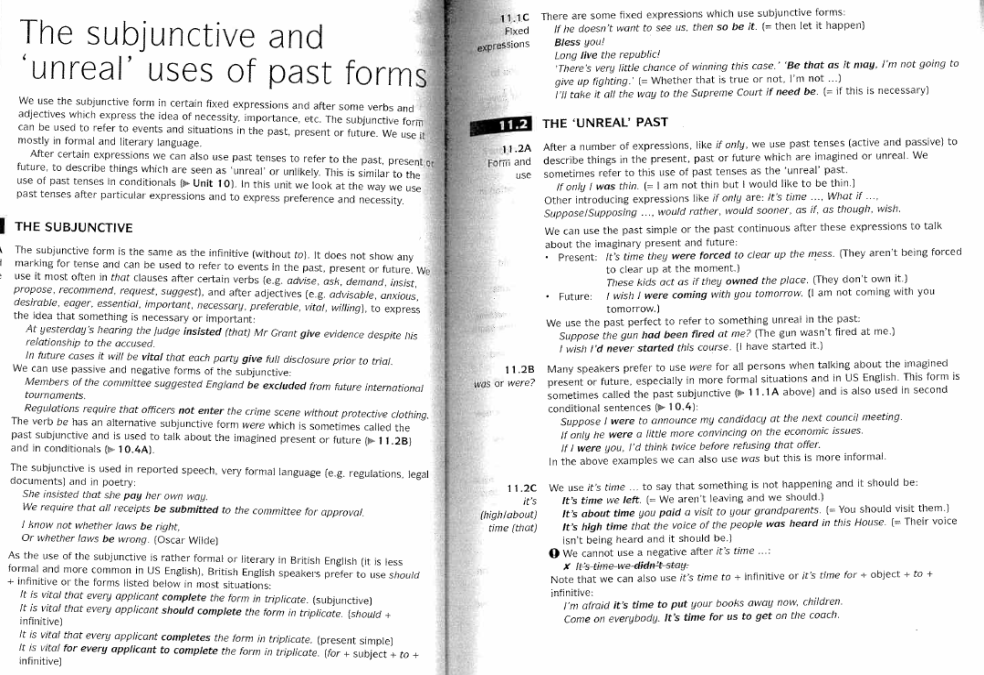
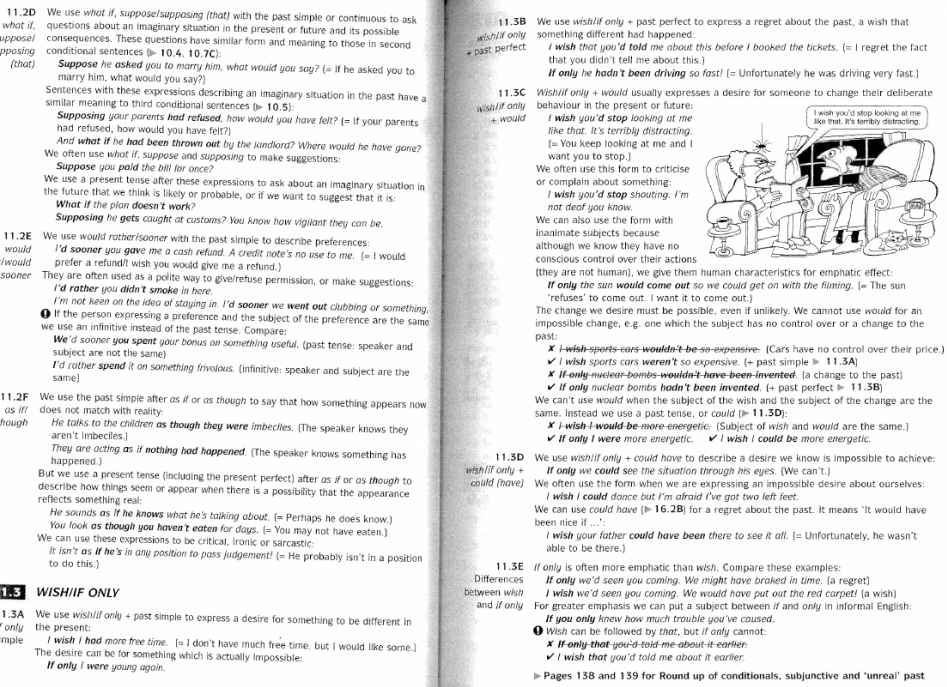
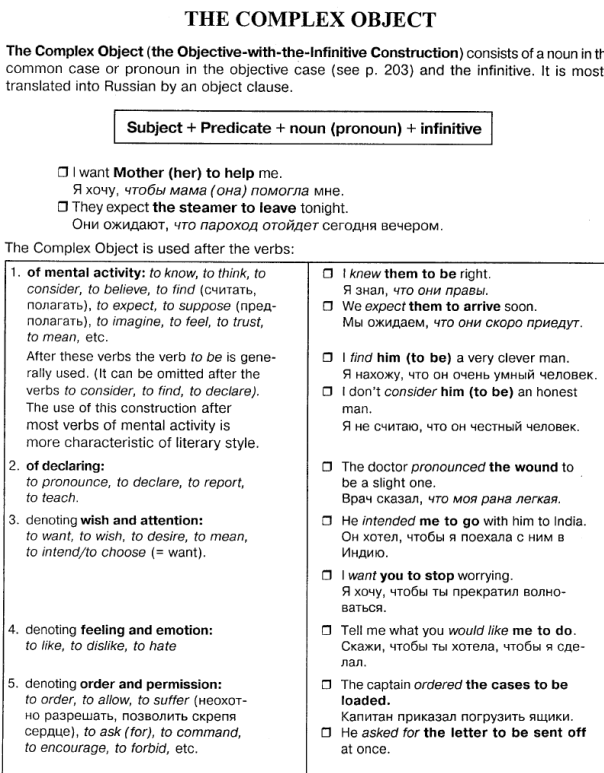
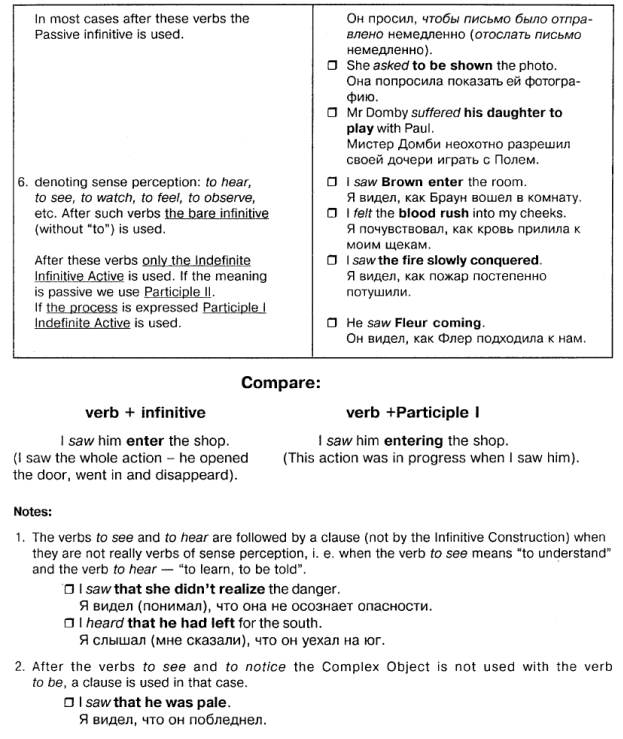
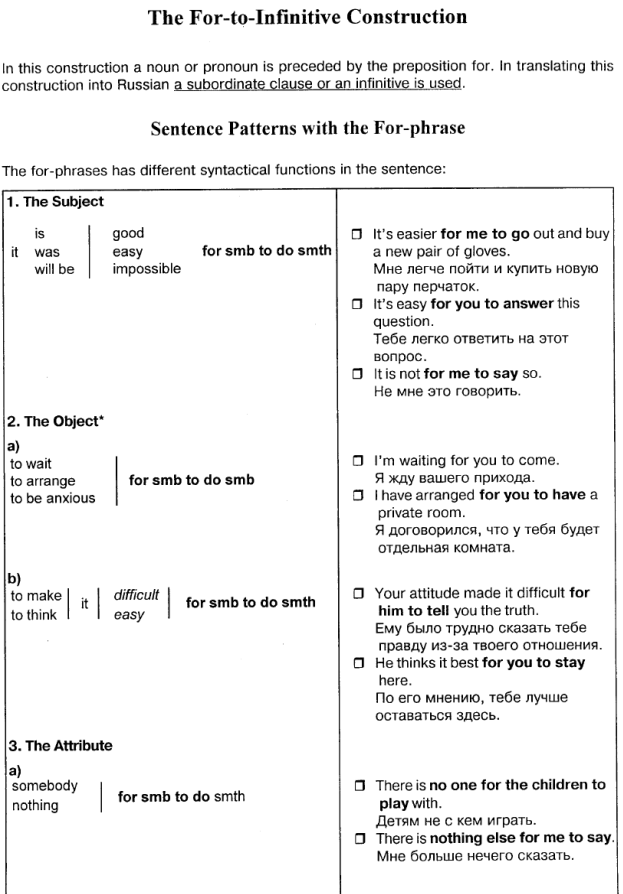
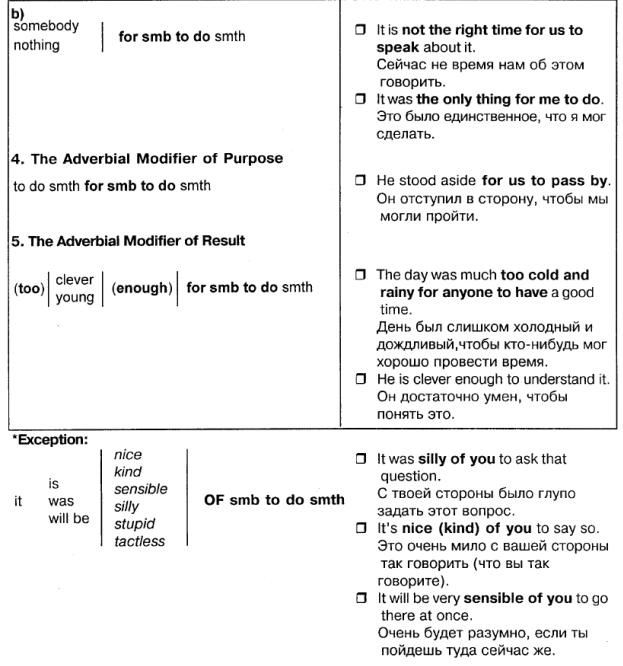
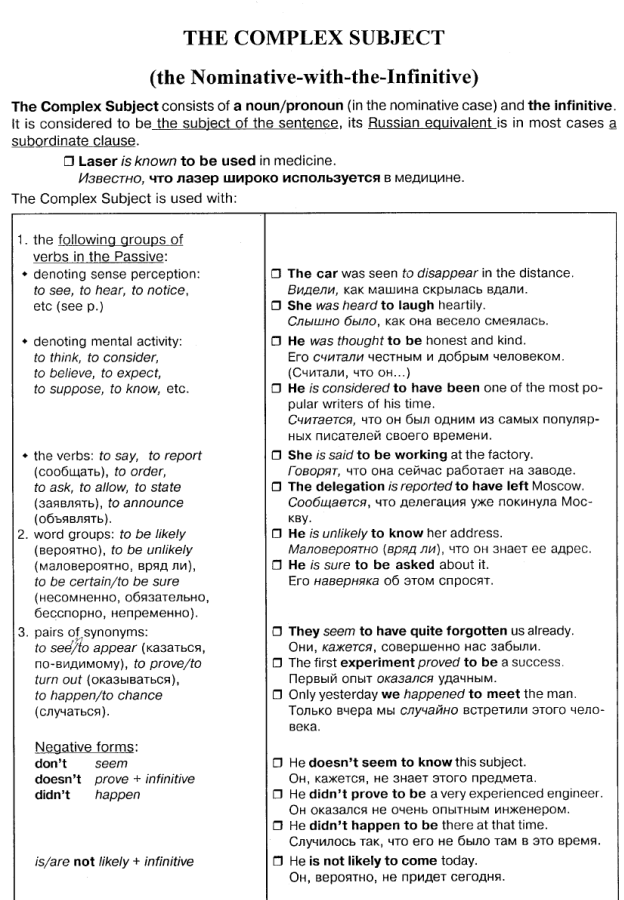
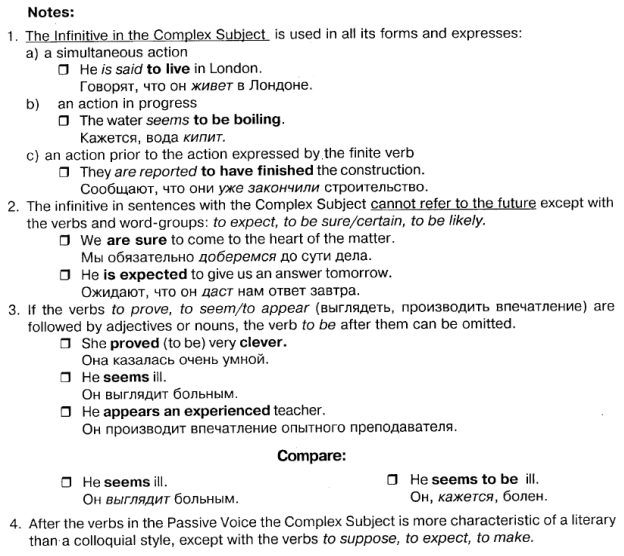
THE SCHEME OF THE ANALYSIS OF THE FICTION TEXT
1. Some information about the writer.
... is a prominent (outstanding, famous) playwright (short-story writer).
He took up writing...
He is famous for...
The writer is distinguished by his brilliant dialogues...
His books are full of witty paradoxes, irony...
... is a very talented writer, he manages to create...
His elevated style of writing is one of the characteristic features of his books.
His famous books are...
His books gained popularity among the readers...
The phenomenon of his success is still being investigated.
His novels have enjoyed great popularity.
With sparkling humour he criticizes the weak sides of human nature.
His first literary success was...
2. The explanation of the title of the book.
The problems raised in the extract define the title of the book...
The title of the book reveals the problem of...
Under the title of the book the writer means...
3. The problems raised in the extract.
The author focuses his attention on the problems of...
The key (main) problems raised in the extract I’ve read are:
- relationship (relations) between a man and a woman;
- relations between two generations (the old and the young);
- the influence of a man on other people’s fates (lives);
- the man and the society (and his surroundings);
- the place of a man in the society; etc.
4. The peculiarities of the author’s style in the extract.
The typical feature of the author’s style is his using a great number of the high-flown words to describe...
The writer has the talent of depicting the people and the situations vividly, with laughter-provoking details.
The writer tells his story in the objective way without going into the minds of the character and without giving his own comments.
The style of the author is very expressive (ironic, masterful)...
In general the author’s style is marked by...
The dialogues are very intensive and dynamic.
The dynamism of the narration is created by a great number of short sentences the majority of which are exclamatory, imperative and interrogative.
Many author's remarks reveal the character’s traits – good or evil.
The interior (inner) monologue renders the thoughts and feeling of the character
5. The characteristic features of the main characters.
The main characters are portrayed through the dialogues...
The author describes the lady (the man) as...
6. The author's attitude towards the main characters.
I can’t say that the author sympathizes with the characters because he reveals their hypocrisy, evil intentions and practical interests.
In my opinion the author describes the characters in the objective way, that’s why it is rather difficult to find out the author’s attitude to them.
I think that the author’s attitude to the main characters is rather ironic: he laughs at the vices of these careless people.
To my mind the author sympathizes with the lady portraying her as a tall and extraordinary graceful woman with a delicately intelligent face.
Interpretation of a Text
- Speak of the author in brief.
- the facts of his/her biography relevant for his/her creative activities
- the epoch (social and historical background)
- the literary trend he/she belongs to
- the main literary pieces (works)
- Give a summary of the extract (story) under consideration (the gist, the content of the story in a nutshell).
- State the problem raised (tackled) by the author.
- Formulate the main idea conveyed by the author (the main line of the thought, the author's message).
- Give a general definition of the text under study.
- a 3rd person narrative
- a 1st person narrative
- narration interlaced with descriptive passages and dialogues of the personages
- narration broken by digressions (philosophical, psychological, lyrical, etc.)
- an account of events interwoven with a humorous (ironical, satirical) portrayal of society, or the personage, etc.
- Define the prevailing mood (tone, slant) of the extract. It may be lyrical, dramatic, tragic, optimistic / pessimistic, melodramatic, sentimental, unemotional / emotional, pathetic, dry and matter-of-fact, gloomy, bitter, sarcastic, cheerful, etc.
- The composition of the story. Divide the text logically into complete parts and entitle them.If possible choose the key-sentence (the topic sentence) in each part that reveals its essence. The compositional pattern of a complete story (chapter, episode) may be as follows:
- the exposition (introduction)
- the development of the plot (an account of events)
- the climax (the culminating point)
- the denouement (the outcome of the story)
- Give a detailed analysis of each logically complete part.
Stylistic Devices
| Metaphor | directly compares seemingly unrelated subjects. It is a figure of speech that compares two or more things not using like or as | That boy is a fox |
| Personification | a figure of speech in which human characteristics are attributed to an abstract quality, animal, or inanimate object | The wind whistled through the trees The flowers danced in the gentle breeze. The fire swallowed the entire forest. |
| Irony | a figure of speech in which there is a contradiction of expectation between what is said what is really meant. is a figure of speech in which words are used in such a way that their intended meaning is different from the actual meaning of the words It is characterized by an incongruity, a contrast, between reality and appearance | posted a video on YouTube about how boring and useless YouTube is. The butter is as soft as a marble piece. |
| Epithet | a descriptive literary device that describes a place, a thing or a person in such a way that it helps in making the characteristics of a person, thing or place more prominent than they actually are. | the sweetest flower of all the field The earth is crying-sweet, And scattering-bright the air, Eddying, dizzying, closing round, With soft and drunken laughter… |
| Metonymy | a figure of speech in which a thing or concept is not called by its own name, but by the name of something intimately associated with that thing or concept | "The king's guns were aimed at the enemy," using 'guns' to represent infantry. |
| Zeugma | a figure of speech in which a word, usually a verb or an adjective, applies to more than one noun, blending together grammatically and logically different ideas. | John lost his coat and his temper” [They] covered themselves with dust and glory.” |
| Pun | a word play which suggests two or more meanings, by exploiting multiple meanings of words, or of similar-sounding words, for an intended humorous or rhetorical effect | “Atheism is a non-prophet institution” the word “prophet” is used instead of “profit” to produce a humorous effect. A horse is a very stable animal. Time flies like an arrow. Fruit flies like a banana. What is the difference between a conductor and a teacher? The conductor minds the train and a teacher trains the mind. |
| Antonomasia | is a kind of metonymy in which an epithet or phrase takes the place of a proper name, such as "the little corporal" for Napoleon I. Conversely, antonomasia can also be using a proper name as an archetypal name, to express a generic idea. | The Queen of Pop" or "The Material Girl" for Madonna The Iron Lady" or the "The Leaderene" for Margaret Thatcher |
| Oxymoron | a figure of speech that combines incongruous or contradictory terms | Alone in the crowd Almost suddenly Anarchy rules! |
| Hyperbole | the use of exaggeration as a rhetorical device or figure of speech. It may be used to evoke strong feelings or to create a strong impression, but is not meant to be taken literally | My grandmother is as old as the hills. Your suitcase weighs a ton! She is as heavy as an elephant! I am dying of shame. I am trying to solve a million issues these days |
| Simile | a figure of speech comparing two unlike things, often introduced with the word "like" or "as" | The beast had eyes as big as baseballs and teeth as long as knives. |
| Euphemism | polite, indirect expressions which replace words and phrases considered harsh and impolite or which suggest something unpleasant. Euphemism is an idiomatic expression which loses its literal meanings and refers to something else in order to hide its unpleasantness | You are becoming a little thin on top (bald). Our teacher is in the family way (pregnant). He is always tired and emotional (drunk). We do not hire mentally challenged (stupid) people. He is a special child (disabled or retarded) |
| Periphrasis | a stylistic device that can be defined as the use of excessive and longer words to convey a meaning which could have been conveyed with a shorter expression or in a few words. It is an indirect or roundabout way of writing about things. | Instead of simply saying “I am displeased with your behavior”, one can say, “the manner in which you have conducted yourself in my presence of late has caused me to feel uncomfortable and has resulted in my feeling disgruntled and disappointed with you”. The high-tech, electronic device said that I had an email. (Refers to computer.) The greatest playwright that ever lived wrote Romeo and Juliet. (Refers to Shakespeare.) |
| Allusion | The act of alluding is to make indirect reference. It is a literary device, a figure of speech that quickly stimulates different ideas and associations using only a couple of words. Allusion relies on the reader being able to understand the allusion and being familiar with the meaning hidden behind the words. | The software included a Trojan Horse. (allusion on the Trojan horse from Greek mythology) to wash one’s hands of it. (allusion on Pontius Pilatus, who sentenced Jesus to death, but washed his hands afterwards to demonstrate that he was not to blame for it.) |






